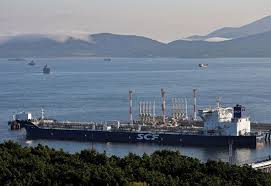Navigating Risky Waters: Compliance with OFAC’s New Price-Cap Policy (Part II of IV)

While OFAC is not always known for its clarity, the department is trying to make it easier for participants in global oil markets to comply with the Price-Cap Policy against Russian oil. This is not an easy task since there are a lot of risks to market participants who will need to develop elaborate and precise due diligence procedures and documentation to avoid OFAC enforcement actions. For the industry, the new set of regulations will make “dancing on the head of a pin” appear easy.
The first and essential question is how to calculate the price of a Russian barrel of oil? To put it more simply, what cost elements are included in the “price” of a barrel of Russian oil. Shipping, freight, customs and insurance costs are not included in the price cap and must be invoiced separately and at commercially reasonable rates. OFAC stated that it will view the billing of commercially unreasonable shipping, freight, customs or insurance as an indication of evasion of the price cap. To ensure compliance, companies must maintain documentation of these expenses for at least five (5) years.
The price cap begins at the “embarkment” of the maritime transport of the Russian oil, meaning when the Russian oil is sold by a Russian entity for maritime transport, and continues to the first jurisdiction where the oil is sold and lands through customs at a location outside Russia. Any further sales of the oil once landed are not subject to the price cap. However, if the oil is taken back out onto the water using maritime transport and has not been “substantially transformed,” the price cap still applies.
In the event that the crude oil is “substantially transformed,” in a jurisdiction other than Russia (i.e., the oil is refined or undergoes other substantial transformation such that the product loses its identity and is transformed into a new product having a new name, character and use), then the oil is no longer defined as Russian-origin and is consequently exempt from the price cap (even if the refined oil is further transported using maritime services).
Under this scenario, a refiner in a jurisdiction that has not banned the import of Russian oil can purchase Russian oil at or below the price cap and rely on U.S. service providers for services related to the maritime transport of that crude oil. Such a refiner can subsequently refine the crude oil and then export the refined oil using ordinary means of maritime transport—including U.S. service providers—without the refined oil being subject to the price cap. OFAC clarified that it does not consider either the mere blending of crude oil or crude oil alone to be “substantial transformation” for the purpose of that determination.

OFAC also would not consider crude oil to be Russian-origin solely based on a de minimis amount of crude oil left over from a container or tank (e.g., a “tank heel,” or unpumpable quantity that cannot be removed without causing damage to the container).
In assessing whether crude oil is Russian-origin, OFAC noted that U.S. persons may reasonably rely on a certificate of origin but should exercise caution if they have “reason to believe” such certificate has been falsified or is otherwise erroneous. A company can never simply bury its head in the sand in the face of evidence indicating a violation.
OFAC specifically exempted from the price cap crude oil that transits through a pipeline in Russia that is loaded and certified with a certificate of origin verifying that the crude is non-Russian origin. OFAC cited for example, Kazakh origin oil transported through the Caspian Pipeline Consortium or the Atyrau-Samara pipelines.

OFAC defines “covered services” according to the following descriptions as each relates to the maritime transport of crude oil of Russian Federation origin:
- Trading/commodities brokering: Buying, selling, or trading commodities and/or brokering the sale, purchase, or trade of commodities on behalf of other buyers or sellers.
- Financing: A commitment for the provision or disbursement of any debt, equity, funds, or economic resources, including grants, loans, guarantees, suretyships, bonds, letters of credit, supplier credits, buyer credits, and import or export advances. For the purposes of the determination, the term “financing” does not include the processing or clearing of payments by intermediary banks.
- Shipping: Owning or operating a ship for the purpose of carrying or delivering cargo and/or freight transportation; chartering or sub-chartering ships to deliver cargo or transport freight; brokering between shipowners and charterers; and serving as a shipping/vessel agent.
- Insurance: The provision of insurance, reinsurance, or protection and indemnity (“P&I”) services; satisfying claims related to underwriting insurance policies that protect policyholders against losses that may occur as a result of property damage or liability; assuming all or part of the risk associated with existing insurance policies originally underwritten by other insurance carriers, including the reinsurance of a non-U.S. insurance carrier by a U.S. person; and liability insurance for maritime liability risks associated with the operation of a vessel, including cargo, hull, vessel, P&I, and charterer’s liability.
- Flagging: Registering or maintaining the registration of a vessel with a country’s national registry of vessels. This definition does not include the de-flagging of vessels transporting Russian oil sold above the price cap.
- Customs brokering: Assisting importers and exporters in meeting requirements governing imports and exports. This definition does not include legal services or assisting importers and exporters in meeting the requirements of U.S. sanctions.
















1 Response
[…] Source link […]